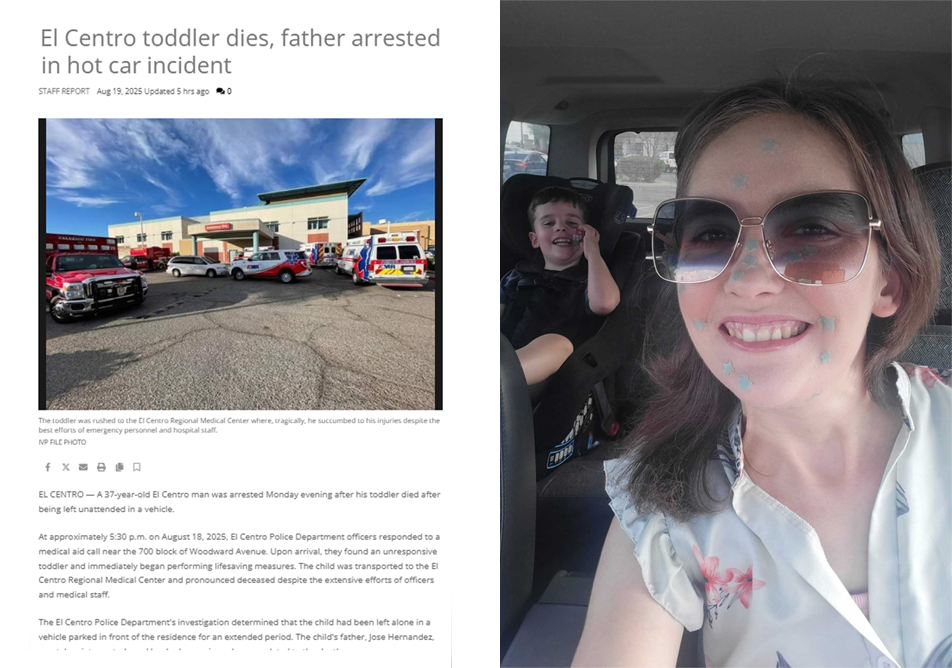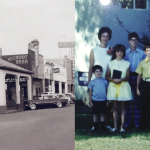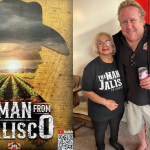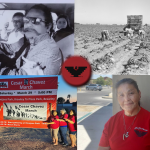written by sharon burns
edited by sarina e. guerra
formatted by justin orsino
On Monday, August 18, a heartbreaking tragedy unfolded in El Centro when a toddler died after being left inside a hot vehicle. It was about 5:30pm when the call came from a concerned citizen, and lifesaving measures were implemented. The child was then rushed to El Centro Regional Medical Center, where despite the efforts of emergency personnel and hospital staff, he did not survive. Authorities confirmed that the 37-year-old father was arrested in connection with the incident. It was determined by authorities that the child was inside the vehicle for hours outside the residence. The investigation is ongoing.
As the mother of a three-year-old (almost four), this story shook me to the core. I can say with certainty that I would never intentionally leave my child unattended in a car. At the same time, I am choosing not to assume malice on the part of the father until more information is known. What I do know is that parenting can be overwhelming, and even the most loving parents are vulnerable to distraction, exhaustion, and the pull of routine. Our brains sometimes slip into autopilot, and in those moments, tragedy can strike. This in no way excuses what happened, but it may offer important insight into how such heartbreaking situations occur—and why…

That’s why the conversation around hot car deaths cannot stop at, “I’d never do that.” The reality is, it happens every year to families who never imagined it could happen to them.
In the Imperial Valley, temperatures are extreme, even as the sun goes down. Even in the evening hours, temperatures can linger well above 90°F, and the inside of a parked car can still climb to life-threatening levels. The desert holds onto the day’s heat, and the metal and glass of a vehicle trap it, creating an oven-like effect long after daylight fades. This means the danger is not just a midday problem—it is a risk that lasts well into the night.
When it’s 100°F outside, a car can reach 120–140°F in less than 30 minutes. Even with windows cracked, heat builds quickly. For a child, whose body overheats three to five times faster than an adult’s, this can become fatal within minutes.
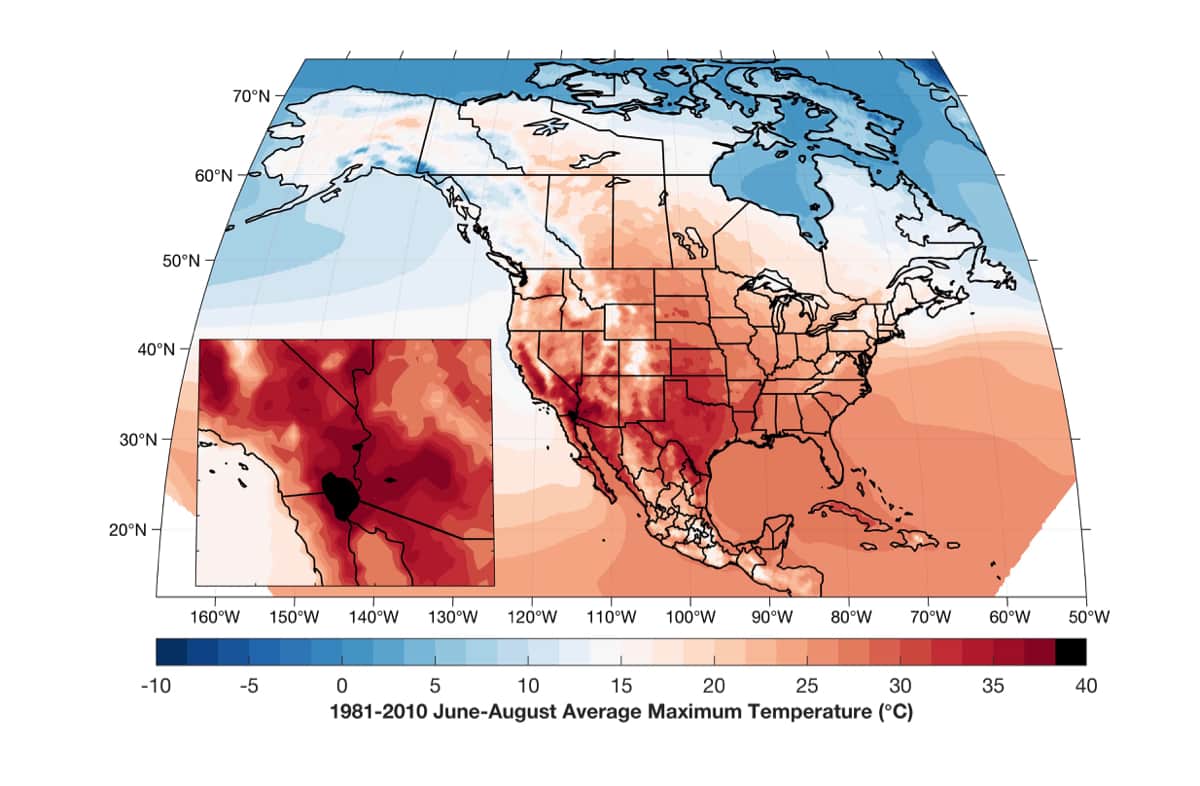
Credit: Desert Research Institute
Experts emphasize the importance of mindset shifts to prevent hot car deaths:
From “I’d never forget” → “I’ll always check.”
Even loving, attentive parents can forget a quiet or sleeping child in the back seat if their routine changes. Making it a habit to always open the back door before walking away builds a safeguard against autopilot errors.
From “Just a few minutes” → “Never at all.”
It doesn’t take hours for a car to become deadly—it can take minutes. Adopting the mindset that a child is never left alone in a car, not even briefly, eliminates dangerous rationalizations.
From “That’s careless” → “That could happen.”
When we assume only “bad parents” forget children, we stop ourselves from taking precautions. Acknowledging that stress, fatigue, or a simple change in routine can cause anyone’s brain to slip helps reduce stigma and increase prevention.
Here are some simple, research-backed practices parents and caregivers can use:
✅ “Look Before You Lock”: Make it automatic to check the back seat every single time you exit.
✅ Place an Anchor Item: Keep your phone, purse, work badge, or even one shoe next to your child’s seat so you can’t walk away without looking.
✅ Use Technology: Many newer vehicles and car seats have built-in alerts or apps that notify you if a child is still buckled in. Activate or download them. If that’s not an option for you, put an alarm on your phone to go off when you get to your destination and put it in the backseat. Once it goes off, you HAVE to look in the back.
✅ Create Caregiver Check-ins: If someone else is transporting your child, agree to a “safe arrival” text or call.
✅ Educate Older Kids: Teach siblings that cars are not safe play spaces, and to alert adults if they see a younger child left inside.
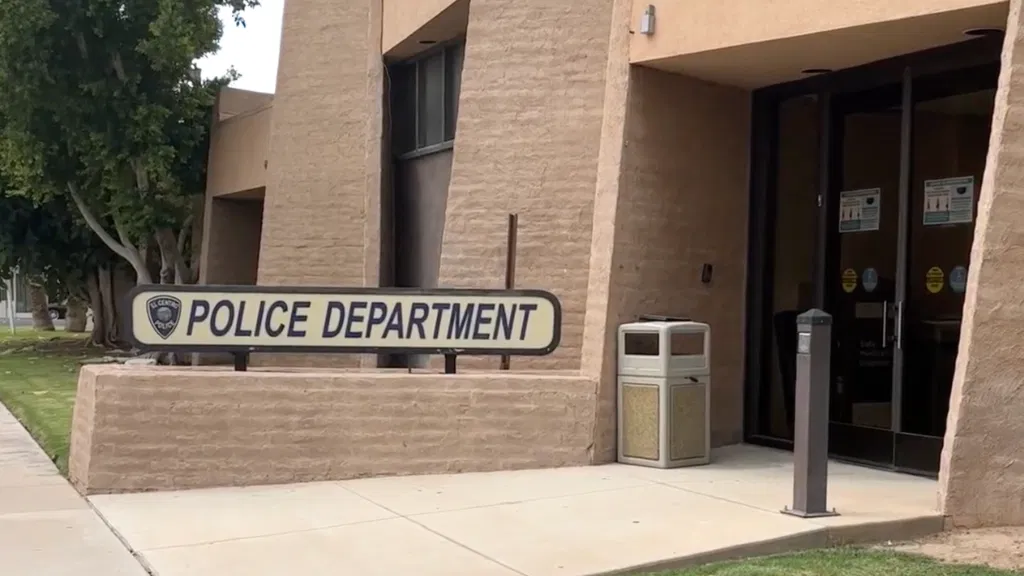
Photo courtesy of KYMA
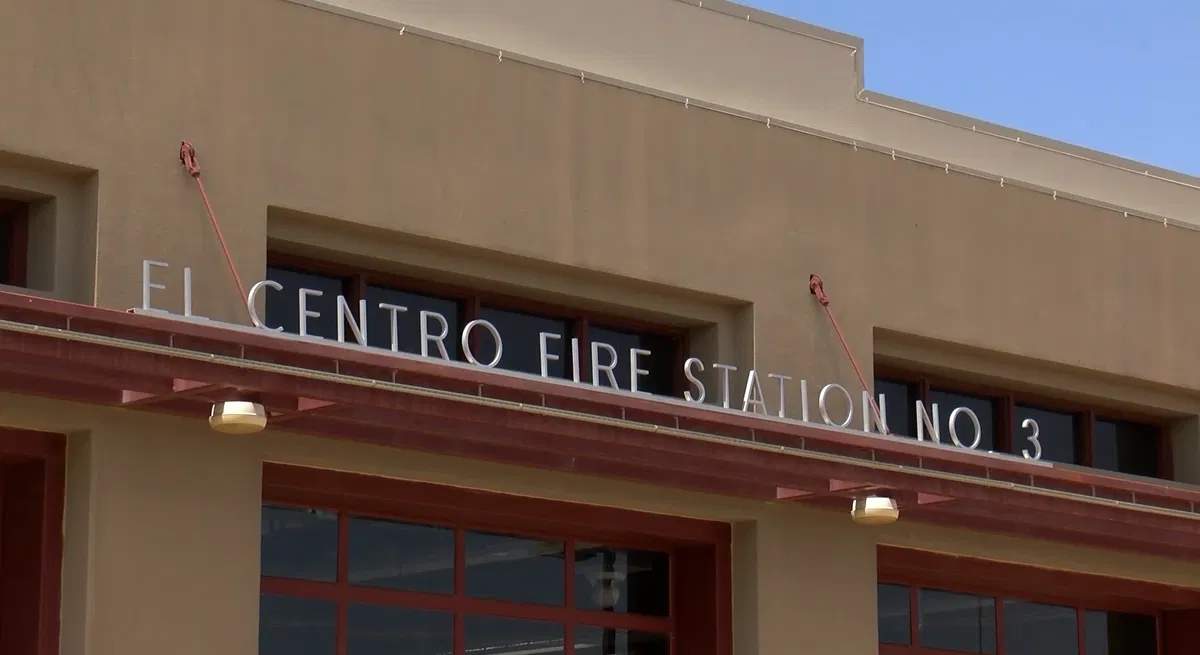
Photo courtesy of KYMA
Some communities also offer text alert programs during heat waves, reminding parents to double-check their vehicles. Even posting a sticky note on your dashboard that says “Baby in Back” can serve as a lifesaving visual cue.
This child’s death is devastating, and our community feels the loss deeply. While accountability will be handled by the courts, what remains is a precious life cut short and a family forever changed.
For me, as both a Catholic and a mother, this is a call to prayer and to action. I prayed for the soul of that little boy and for healing for his family. And I also made a quiet promise to myself: to stay vigilant, to keep sharing resources, and to encourage other parents never to rely solely on memory or routine.

We can honor this child’s memory by shifting our mindset, building habits, and spreading awareness. If even one life is saved because a parent double-checks their back seat, then his short life will have sparked something powerful—protection for others.
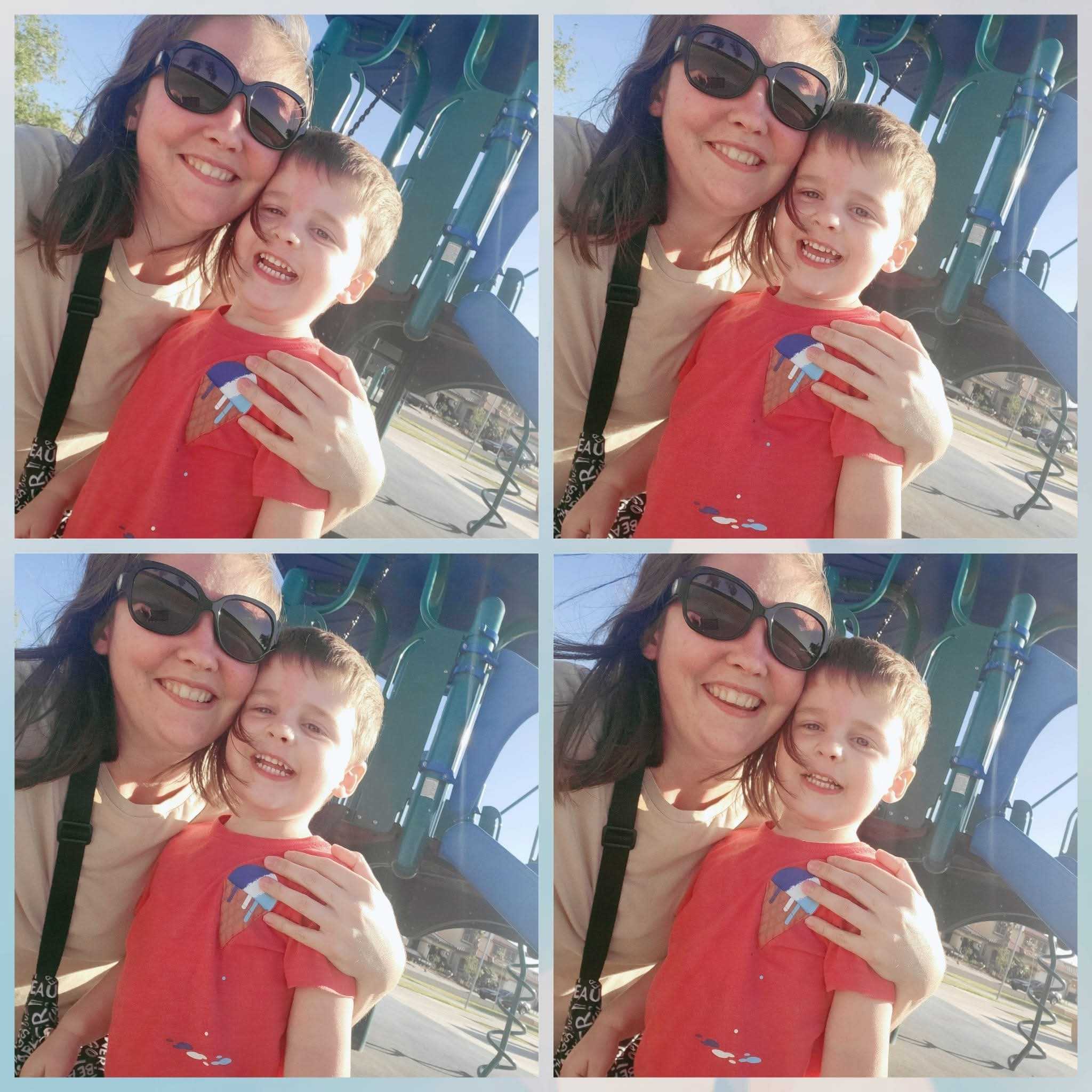
Photo courtesy of Sharon Burns
RESOURCES FOR FAMILIES
KidsAndCars.org – national leader in prevention campaigns and parent resources.
National Highway Traffic Safety Administration (NHTSA) – offers awareness materials and safety recommendations.
Safe Kids Worldwide – provides child passenger safety guides and tips.
Local Fire & Police Departments – many offer free workshops and car seat checks.
Licensed English tutor specializing in high school & college support — elementary students welcome too. ✍️📚

